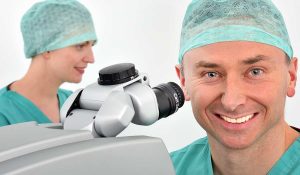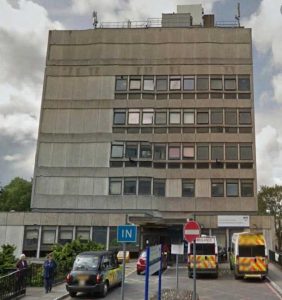For the last 25 years, vision correction has been synonymous with laser eye surgery, a procedure involving fine tuning of the eye’s focusing power by gently reshaping its surface using an excimer laser.
Although laser surgery still holds a valuable place in the field of vision correction few people realise, until they explore their options, that there are other treatments that may be more suitable for them. Laser Vision Scotland turns away around 30% of patients who are interested in laser eye surgery. The reason for this is that an alternative treatment is more suitable for their individual eyes.
Consultant Ophthalmologist, Mr Ross said, ‘Patients should feel comfortable discussing the treatment range available at their chosen laser eye clinic. I would always recommend patients visit a clinic that offers the full range of vision correction options to ensure they only receive the treatment that is right for them.’
Over the past decade technology for measuring the eye, for precisely manufacturing artificial lenses, for safely performing eye surgery and for fine tuning suboptimal surgical outcomes has resulted in lens replacement surgery moving centre stage in the specialty of vision correction.
How does lens replacement work?
Having lens replacement surgery involves a half day stay in hospital. Local anaesthetic drops are used to numb the eye in this ‘no needle’ procedure. Once the eye is numbed, one of our highly experienced consultant surgeons makes a tiny cut on the surface of your eye. Ultrasound is used to gently break down the natural lens, and a new implant is introduced to the eye and carefully positioned. This usually takes 15 to 20 minutes.
Your surgeon will tailor the new lens to your individual age, lifestyle and spectacle prescription. Approximately 95% of patients are satisfied with the outcome of surgery, and many describe it as life changing.*
Patients’ who previously declined treatment because laser surgery would not suit them, can now be offered vision correction lens replacements with a wide and fast-growing range of intraocular lens solutions.
The removal of the natural lens also means that any cataracts that may be forming are also removed and the introduction of the new, artificial lens mean cataracts will never form in the future.
Rachel, who had lens replacement surgery at Laser Vision Scotland, Shawfair Park Hospital said, ‘I knew the minute I sat up (after my procedure) that I could see. It was quite astonishing and quite emotional. Having lived all of my life up to that point thinking ‘where’s my specs’, to not have to do that and to be able to see and read…to me it was staggering. The change to my life has been quite phenomenal. It’s the greatest gift that anyone could have given me.’
Mr Ross added, “I will always offer the procedure that is right for each individual patient. Sometimes that is laser eye surgery, but for other patients it may be lens replacement or implantable lens surgery. Laser Vision Scotland patients can rest assured that they will always be offered the treatment most appropriate for their individual needs.”


